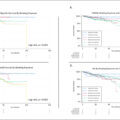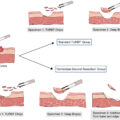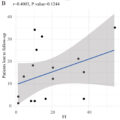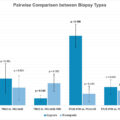Highlights
- •
Patients undergoing cystectomy have significant emotional and mental health needs.
- •
Providers should proactively address the mental health needs of these patients.
- •
Mental health specialists should be part of the cystectomy treatment team.
- •
Caregiver mental health needs should also be proactively addressed.
Abstract
Introduction
Studies have shown that cystectomy has a large psychological burden on patients with bladder cancer. However, there has been little work characterizing areas of improvement. This project aimed to understand cystectomy patients’ experiences and to identify patient-centered methods to improve perioperative support.
Methods
Five focus groups, divided by diversion type and gender, (4 virtual, 1 in person) of patients with bladder cancer (n = 17) who underwent cystectomy were conducted. Conversations were transcribed and qualitatively analyzed using the Sort and Sift, Think and Shift © method. Transcripts were coded in NVivo and themes were summarized in higher-level analysis.
Results
Patients described feelings of depression, anger, and anxiety in response to their cancer diagnosis, need for cystectomy, and living with urinary diversion. Patients experienced daily mental hardship while adapting. They experienced distress from diversion visibility in public and private encounters. Many expressed a dichotomy of feeling grateful for the treatment while also feeling bitter about the impact on their daily life. Patients reported that while their care team provided support for tangible needs, they did not provide information for nor discuss mental and sexual health needs during this time. Patients reported that if their provider had initiated discussions and offered referrals, they would have accepted support. Patients also emphasized the benefit of social and peer support networks for emotional support.
Conclusions
Groups identified the psychological difficulties of bladder cancer diagnosis and cystectomy. Potential avenues for improvement included incorporating support resources into the care plan and perioperative discussion regarding the emotional impact of surgery.
1
Introduction
Cystectomy is a surgical treatment option for bladder cancer (BCa) that is associated with significant rates of complication and readmission [ ]. Beyond these more traditional measurements of morbidity, there is growing recognition of the mental impact that both diagnosis and surgery have, and its subsequent prognostic relationship with peri-operative outcomes. Baseline poor psychological indicators have been associated with worse outcomes for patients undergoing cystectomy [ ]. In addition, several studies have shown significant negative impact on patients’ emotional well-being after diagnosis and treatment, which are also associated with worse quality of life and increased postoperative complications [ ]. Aspects of and contributors to emotional well-being within this patient population are being explored, such as anxiety, depression, body image and sexual function [ ].
Beyond recognizing the clinical importance of these factors, there is growing discourse on current interventions that seek to measure and address these needs [ ]. However, there has been little work to characterize the successes or potential areas of improvement in current practice. Utilizing patient perspectives to understand their experiences allows us to learn of mental health needs and focus on patient-desired changes to improve future cystectomy experiences.
2
Materials and methods
2.1
Research team
The research team included members from the University of Wisconsin (UW): Urology department members (EZ, KR- the surgeon who performed all but one of the patients’ cystectomies), a medical student (AR), an undergraduate student (TL), and members from the Wisconsin Surgical Outcomes Research (WiSOR) Program (BP, MS, EA). To avoid influencing patient input, KR was not involved in data collection.
2.2
Data collection
We obtained exemption from our institutional review board before conducting our research. Patients who met eligibility criteria were recruited from the Wisconsin Bladder Cancer Network (WiBCaN). Criteria included a history of BCa, prior cystectomy, and availability to participate in focus groups. Participants (n = 17) ( Table 1 ) were divided by diversion type and gender. Five groups were conducted: women with continent diversions (WC); women with ileal conduits (WIC); men with continent diversions (MC); and 2 groups of men with ileal conduits (MIC1 and MIC2). All groups, except for MIC2, were conducted via Zoom (patient preference). Sessions were recorded for later analyses, transcribed verbatim, and imported into NVivo, a qualitative data analysis software program for data management. The focus group script was designed and revised by the research team. The open-ended questions covered topics surrounding surgery, recovery, complications, and long-term effects. We were initially seeking to improve patient education and did not explicitly ask about mental impacts.
| Overall (n = 17) | |
|---|---|
| Median Age (yrs) | 70 |
| Sex (%) | |
| Male | 11 (65) |
| Female | 6 (35) |
| Race (%) | |
| White | 17 (100) |
| Other | 0 |
| Diversion (%) | |
| Ileal Conduit | 11 (65) |
| Neobladder | 4 (24) |
| Indiana Pouch | 2 (12) |
| Mean Time from Surgery (yrs) | 3.92 |
| Education Level (%) | |
| <High School | 0 |
| High School or GED | 0 |
| Some College | 5 (29) |
| Associates Degree | 0 |
| Bachelors Degree | 4 (24) |
| Masters Degree | 3 (18) |
| Doctoral Degree | 1 (6) |
| Unknown/Prefer not to say | 4 (24) |
| Household Income | |
| $0-20,000 | 0 |
| $20,001-40,000 | 1 (6) |
| $40,001-60,000 | 3 (18) |
| $60,001-80,000 | 3 (18) |
| $80,001-100,000 | 2 (12) |
| >$100,000 | 3 (18) |
| Unknown/Prefer not to say | 5 (29) |
| Theme | Subtheme | Example quote |
|---|---|---|
| Mental impact of diagnosis | Reactions to diagnosis | “It [bladder cancer] was weighing very, very heavily on my mind from the minute it was discovered. ” (MIC1) “I was dealing with the…stage 4 diagnosis where then it spread into my lymph nodes and I think there was some doubt if I was going to make it at all…” (MIC6) |
| Impact on ability to process information | “Amongst all that information and the fact that you’re dealing with cancer, you don’t remember everythin g.” (MIC2) “…it’s very possible that at least for me, I was told those things but I really think the focus is on…I hope I don’t die, you known, from this surgery.” (MIC4) | |
| Mental health needs related to recovery | Lack of preparation for mental aspects of recovery | “What I missed and really needed was some of the mental health, the coping mechanisms related to that… I was in a very deep, dark place during that month. I wasn’t prepared for that.” (WIC) “…as part of a care plan, preparing for surgery, mental health support along the way of being more encouraged, woven, integrated, coordinated.” (WIC) |
| Emotional burden of living with urinary diversion | Mental burden of changes to daily life | “I went through depression because I just felt such an upheaval of my normal day and lifestyle and the pouch .” (WC) “I basically just wanted things to be back to normal.” (MC) |
| Embarrassment about diversion | “I find that very embarrassing, because I am in public quite a bit with golfing. And it’s very obvious that I have this .” (MIC1) “My coworkers are like, ‘Where have you been?’ And they don’t understand. They’ve not gone through it and its hard to explain.” (WC) | |
| Diversion impacts on intimate relationships | “The issues with sex, it could be psychological, it could be physical, could be both, it could your spouse has a problem with how your body now looks. You have this hole in your stomach with a band aid over it, basically. And he knows what’s behind the band aid, and it just freaks them out. So your sex life will suffer…” (WC) “…I am not able to naturally get an erection, so that obviously is very embarrassing for me and not being in a committed relationship… obviously that is an awkward conversation to have with potential partners.” (MIC) | |
| Mental impact of sexual dysfunction | “I’m able to perform, it’s not like it was… [KR] prescribed Viagra for me to mainly open up blood vessels… because in that kind of surgery, your body goes into shock. Stuff just starts shutting down, it’s not going to work the way it used to. I don’t know if that was a side effect or due to the anesthesia, but that took a while to get over…” (MC) | |
| Cognitive dissonance of gratitude and bitterness toward the surgery and outcomes | “I’m very thankful for the surgery because I had cancer… But I just am kind of bitter about what I’ve had to change and what I deal with every day… but I’m very grateful, very grateful that this type of procedure exists and that I was able to benefit from it.” (WC) “…for me it’s all about mental health and the emotional psychological repercussions of vacillating between being pissed off, scared, and incredibly grateful that I’m on the other side of the surgery.” (WC) |
Stay updated, free articles. Join our Telegram channel

Full access? Get Clinical Tree








